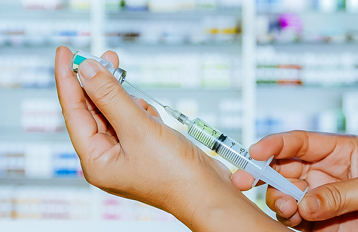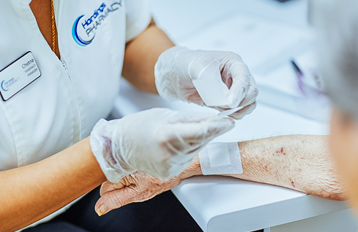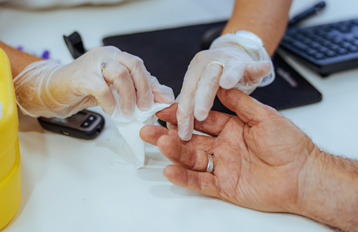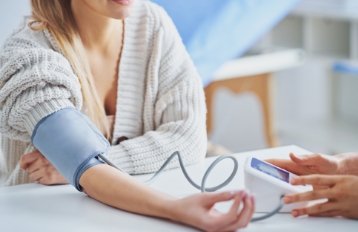Community pharmacies have long been centres for treating minor wounds, such as cuts, grazes, and burns. Your community pharmacist’s role in wound care reflects their extensive healthcare training and on-the-job experience.
When to seek help
While pharmacists are well-equipped to manage minor wounds, it's important to recognise when you need to visit a hospital or doctor, especially for serious injuries. Even for minor wounds, it's advisable to see a healthcare professional rather than self-treating with bandages from non-health suppliers like supermarkets.
Wound care services
Some pharmacies now offer dedicated wound care services. When you seek treatment, the pharmacist will examine your wound and ask how it occurred. The wound will be washed and cleaned to remove any foreign bodies like dirt, glass, or stones. If there's any uncertainty about whether all foreign matter has been cleared, you may be referred to a doctor or hospital emergency department.
Stopping bleeding and dressing wounds
After ensuring the wound is clean, the pharmacist will stop any bleeding and then dress the wound appropriately.
Ongoing treatment and care
Wounds need ongoing treatment. Your pharmacist will counsel you on how to clean and redress the wound, look for signs of infection, and when to seek further medical advice. They may also advise on pain relief and the importance of good nutrition and skincare to maximise wound healing rates.
Wound care supplies
In addition to providing treatment, your community pharmacy offers a range of wound care supplies, including:
Your pharmacist can help you choose the right supplies to ensure your wound heals properly and minimise the risk of infection.
Find a pharmacy near you offering wound care services.
Additional wound care resources:
- Visit Wounds Australia for a collection of chronic wound resources designed to help support you and your relationship with your healthcare professionals.
OUR SERVICES What We Offer

Everyday health
Your local community pharmacy is your go-to destination for everyday health needs. From coughs and colds to travel health and mobility care, your community pharmacists can do more for you with expert advice and effective treatments to help you stay healthy and active. Explore our range of services to keep your family well every day.

Vaccination
Your community pharmacist can do more for you with a wide range of vaccines available, from flu and COVID-19 to essential travel immunizations. Visit your local pharmacy to stay healthy, protected, and up-to-date with your vaccinations.

Skin
Your community pharmacist is here to help you care for your skin, from managing common conditions like school sores, eczema, and acne to offering guidance on wound care, shingles, and sun protection. Visit your local community pharmacy for expert advice and effective solutions to keep your skin healthy every day.

Women's health
Community pharmacists are enhancing women’s health by providing comprehensive support at every stage – from conception and contraception to bone health and beyond.

Harm reduction & dependency
Your community pharmacist is here to help with harm reduction and dependency, offering support, resources, and more.

My medicines
Get expert support with your medications through comprehensive reviews and management services provided by your community pharmacist. From home medicine reviews and MedsCheck consultations to dose administration aids and staged supply, we’re here to help you every step of the way.

Chronic conditions
Get the support you need from your community pharmacist to manage chronic conditions. With expert advice, personalised medication management and tailored health services, community pharmacies empower you to take control of ongoing health challenges and improve your quality of life.

Testing & screening
Take control of your health with convenient testing and screening services at your community pharmacy. From regular monitoring to early detection, these essential services help identify potential health risks and support proactive care. Your pharmacist is here to guide you in staying informed and making health-conscious decisions for a healthier future.



